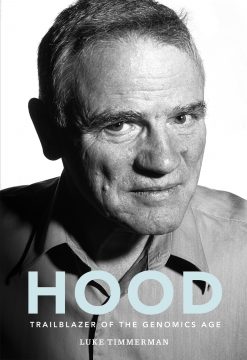Luke Timmerman in Undark:
 TWO WEEKS BEFORE Christmas 1999, Lee Hood appeared to have it all: A loving family. Money. Fame. Power. He counted Bill Gates, one of the world’s richest men, as a friend and supporter. Eight years earlier, Gates had given the University of Washington $12 million to lure the star biologist from Caltech in what the Wall Street Journal called a “major coup.” Hood’s assignment on arrival: build a first-of-its-kind research department at the intersection of biology, computer science, and medicine. Even at 61, the former high school football quarterback could still do 100 pushups in a row. He ran at least three miles a day. He climbed mountains. He traveled the world to give scientific talks to rapt audiences. At a time when many men slow down, Hood maintained a breakneck pace, sleeping just four to five hours a night. He owned a luxurious art-filled mansion on Lake Washington, but otherwise cared little for the finer things in life, sporting a cheap plastic wristwatch and driving an aging Toyota Camry. Those who worked closely with him said he still had the same wonder and enthusiasm for science he had as a student.
TWO WEEKS BEFORE Christmas 1999, Lee Hood appeared to have it all: A loving family. Money. Fame. Power. He counted Bill Gates, one of the world’s richest men, as a friend and supporter. Eight years earlier, Gates had given the University of Washington $12 million to lure the star biologist from Caltech in what the Wall Street Journal called a “major coup.” Hood’s assignment on arrival: build a first-of-its-kind research department at the intersection of biology, computer science, and medicine. Even at 61, the former high school football quarterback could still do 100 pushups in a row. He ran at least three miles a day. He climbed mountains. He traveled the world to give scientific talks to rapt audiences. At a time when many men slow down, Hood maintained a breakneck pace, sleeping just four to five hours a night. He owned a luxurious art-filled mansion on Lake Washington, but otherwise cared little for the finer things in life, sporting a cheap plastic wristwatch and driving an aging Toyota Camry. Those who worked closely with him said he still had the same wonder and enthusiasm for science he had as a student.
Yet here, at the turn of the millennium, Hood was miserable.
His once-controversial vision for “big science” was becoming a reality through the Human Genome Project, yet he didn’t feel like a winner. He felt suffocated. He had a new vision, a more far-sighted and expansive one that he insisted would revolutionize healthcare. But he felt the university bureaucrats were blind to the opportunity. They kept getting in his way. It was time, Hood felt, to have a difficult conversation with his biggest supporter. On a typically dark and gray December day in Seattle, Hood climbed into his dinged-up Camry and drove across the Highway 520 floating bridge over Lake Washington to meet Gates, the billionaire CEO of Microsoft. Hood shared some startling news: he had resigned his endowed Gates-funded professorship at UW. He wanted to start a new institute free from university red tape. It was the only way to fulfill his dream for biology in the 21st century.
Gates was well aware of Hood’s record of achievements and its catalytic potential. Hood had led a team at Caltech that invented four research instrument prototypes in the 1980s, including the first automated DNA sequencer. The improved machines that followed made the Human Genome Project possible and transformed biology into more of a data-driven, quantitative science. Researchers no longer had to spend several years — an entire graduate student’s career — just to determine the sequence of a single gene. With fast, automated sequencing tools, a new generation of biologists could think broadly about the billions of units of DNA.
More here.
